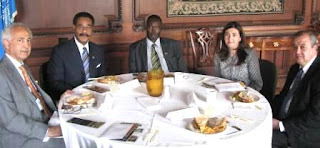The Ways and Means Committee and Health, Education and Labor Committee passed a health care reform bill that, for the first time in our nation’s history, will guarantee health care for all Americans. The proposal is complicated but seeks to reign in the spiraling cost of health care while allowing those who like the health care they have to keep those plans.
The proposal will provide for a group of private plans as well as a public plan that will be offered as part of an “exchange” where all Americans can compare and choose a plan that best suits their needs.
To participate in the “exchange” and have the opportunity to enroll some of the millions of Americans that are currently uninsured, private insurers would have to cover all pre-existing conditions. On this “exchange” Americans could also select to be insured by a public health insurance option. That option would help drive down costs across the board.
This bill is still evolving, but the Washington Post put together a few bullet points that outline potential benefits under the proposal now moving through the House (see below). And
If you are Uninsured- Currently 46 Million Americans
-How you could benefit from reform:
If you have a low income, you could have an easier time qualifying for Medicaid, a program funded by the state and federal governments.
In addition, based on your income, you could receive federal aid to purchase private insurance and vouchers for preventive care.
The proposal gives you the option of buying insurance through “exchanges” which lay out all of the options, benefits and price points available.
Insurers would be prohibited from denying coverage for preexisting conditions or taking into account your medical risk when setting your premium.
Insurers in the” exchanges” would offer a minimum set of benefits. For example, an annual cap on out-of-pocket expenses and end co-payments and deductibles for preventive care.
Older people could pay relatively lower premiums, because age-based variations in rates could be restricted.
Along side private options you would also buy coverage from a public option whose scale would enable it to pass along savings.
If you are on Medicare and Medicaid- Currently 42 million and 37 million Americans
- How you could benefit from reform: Medicare
The “doughnut hole” for prescription drug coverage, which leaves you responsible for the cost when you’ve racked up $2700 to $6100 of annual prescription expenses, would be closed.
You can obtain preventive services without paying anything out of pocket.
You can qualify for drug subsidies with more assets than current recipients are allowed.
Income from the sale of your primary residence could be excluded from determinations of who pays higher premiums for outpatient coverage.
Premiums would be reduced for seniors who enroll in wellness of disease-management programs.
Payments to primary-care doctors could be increased, paving the way for them to play a larger role in your care.
Your annual out-of-pocket expenses could be capped, protecting you from catastrophic bills.
- How you could benefit from reform: Medicaid
Increased reimbursements for physicians could make it easier to find doctors. You could also gain access to private health plans.
For individuals buy their own insurance- 15 million Americans
- How you could benefit from reform:
You would have the option of buying insurance through “exchanges”, with an annual cap on out-of-pocket expenses, an end to co-payments and deductibles for preventive care, and no more annual or lifetime limits on coverage.
Insurers in the “exchanges” could be barred from denying coverage based on your medical history. Insurers would be required to cover your preexisting conditions.
Older people could end up paying relatively lower premiums, because age-based variations in rates could be restricted.
You could gain the option of buying coverage from a public plan whose scale and purchasing power could enable it to pass along savings.
Based on your income, you could receive federal aid to purchase insurance.
Your employer would be required to provide health benefits or pay a penalty, increasing the odds that you would receive coverage at work.
If your employer pays for your insurance-sponsored: 158 million Americans
- How you could benefit from reform:
If you’re employed at a small business, you and your employer would gain the option of buying coverage through the “exchange”, in which insurers would have to offer a minimum set of benefits and factors such as health status would not count against you. The government might help your employer pay for health benefits.
The proposal will increase the quality of care as a result of efforts to increase coordination among providers, identify and encourage best practices, automate medical records, avoid unnecessary tests and procedures, and reduce medical errors.
With expanded coverage for the uninsured, you and your employer would experience a reduction in hidden health tax you now pay to cover the cost of care that hospitals provide without compensation.
If you leave or lose your job and have to buy your own insurance, you would have much better options than those now available to you. Having new alternatives could make it easier for you to leave a job in which you feel trapped; if you get laid off, it could save you from joining the ranks of the uninsured.



